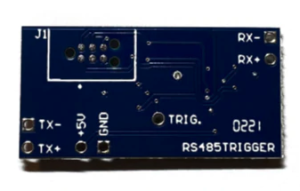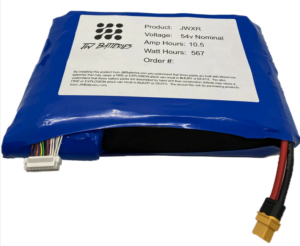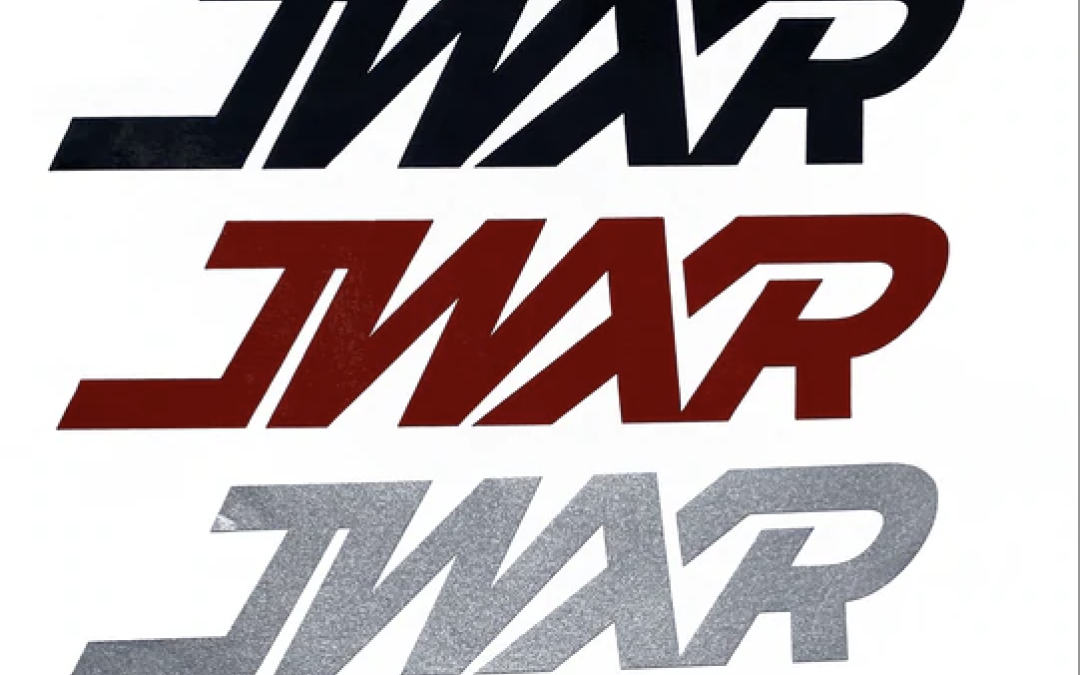Everything You Need to Know about the Onewheel Lawsuit Against JW Batteries
Who’s Involved in the JWFFM Onewheel Lawsuit?
On August 31, 2021, Future Motion filed a lawsuit against JW Batteries, LLC, a manufacturer and seller of aftermarket batteries which extend the range and torque capabilities of the Onewheel.
Why is Future Motion Suing JW Batteries?

JWFFM chip
Future Motion’s complaint centers largely around an electronic chip—the JWFFM chip—that mimics certain pairing requirements between board systems to allow installation of aftermarket batteries.
Early hardware versions of Onewheel XRs and Pints could be modified with aftermarket batteries because the controller and battery management system (BMS) were independent components. When Future Motion released newer hardware versions of the XR and Pint, the company paired the controller and BMS.
This pairing effectively prevented the use of any battery other than the board’s originally-installed stock battery. It also prevented the operation of any controller or BMS from another source. These technological changes rendered Future Motion the sole entity that could change (or repair) any battery.
The JWFFM chip bypasses this new pairing system by mimicking the pairing of the hardware, known as “spoofing.” This modification made it possible for third-party manufacturers to install or replace aftermarket batteries (including JW’s own products) on all versions of the hardware.

JWXR Battery
With this chip, owners can replace their own batteries or install aftermarket batteries—many with enhanced capability and performance. The end result of such a modification can be a board with additional range and torque capabilities—or, in the eyes of Future Motion, a board with “unsafe riding conditions.”

JWXR sticker
The lawsuit also alleges that JW Batteries infringed on Future Motion’s trademarks through the distribution and use of certain graphics through stickers and other promotional paraphernalia.
Which Laws Did JW Batteries Allegedly Break?
Future Motion alleged in its lawsuit that the JWFFM chip modification rendered boards unsafe. The company’s grounds for these allegations rest in the Digital Millennium Copyright Act (“DMCA”) section 1201 and the Computer Fraud and Abuse Act (“CFAA”).
The DMCA Section 1201 prohibits third parties from circumventing technological measures put in place by or on behalf of the copyright owner (in this case, Future Motion). It also prohibits trafficking in technology or services that facilitate such circumvention. The CFAA prohibits intentionally accessing certain protected computer systems without authorization.
Future Motion claims Onewheels operate only if battery conditions are safe, and that their pairing requirements are necessary to prevent unauthorized batteries which could lead to unsafe battery conditions. The allegation further claims that this tarnishes the company’s reputation by potentially causing injury to customers and property, thereby affecting future sales.
Finally, Future Motion alleges a sticker sold by JW Batteries depicting the letters “JWXR” violates trademark law because it incorporates the stylized XR lettering trademarked by Future Motion, which could confuse consumers.
What Happens Next?
JW Batteries’ response to the substance of these claims is not due as of the time of this writing. The company filed a motion to dismiss on the grounds that the lawsuit was filed in the wrong California federal district court. However, even if that motion is granted, the case will simply be delayed as venue is transferred.
Among other defenses, JW Batteries may argue that the DMCA does not apply because the Onewheel is a vehicle, an exempted category from the provisions of the DMCA.
They may also argue a legal concept known as “patent exhaustion,” an equitable doctrine that prevents a patent holder (Future Motion) from restricting further sales or use of a patented invention once that patent holder has received the benefits of the patent from a first sale.
It is also possible that the Federal Trade Commission could get involved to determine whether Future Motion is violating its right to repair policies.
As for the “JWXR” sticker, it is likely JW Batteries will argue lack of cognizable damages related to the sticker.
With the release of the GT and the Pint X, Future Motion has launched products which appear to address consumer desire for additional range and torque characteristics in its stock batteries. They’ve also announced a phasing out of XRs from their product line. All of these developments could potentially coalesce into a resolution of the lawsuit either through settlement between the parties or final adjudication of the lawsuit.
Context Within the Right-to-Repair Movement
It is important to understand that lawsuits never exist in a vacuum. Future Motion is currently defending multiple personal injury claims. The company is incentivized to ensure that its products are as safe as possible and that they appear safe to the public.
On the other hand, more than half of the states in the US are considering “right to repair” legislation and the Federal Trade Commission is stepping up enforcement of “right to repair” policies. Giant tech companies like Apple have recently followed a trend of amending policies to allow for third party repair of their products.
What does all of this mean for us, the Onewheel community?
Future Motion created the products which brought IOWA into existence, and JW Batteries created products intended to enhance the consumer experience of using a Onewheel. IOWA is hopeful that this fight can be fairly resolved for the benefit of all Onewheel riders.

